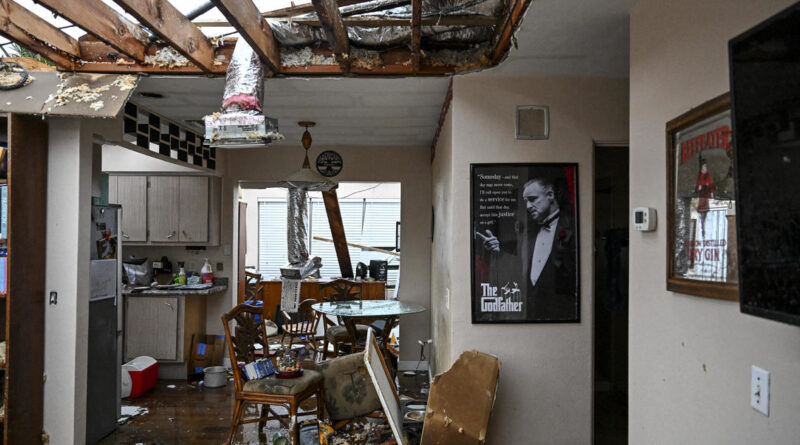What to know about filing an insurance claim after a hurricane
Hurricanes Helene and Milton wreaked havoc on states across the U.S. Southeast and Gulf Coast, with each estimated to have caused losses of at least $50 billion.
With hard-hit communities still cleaning up from the devastating storms, many homeowners now face another challenge — negotiating the insurance process to ensure their reconstruction costs are covered and repair work is completed in a timely manner. Here are some key tips when it comes to filing a claim.
Photos help
Ideally, people would have “before” photographs and videos of their home that can be compared to a set of “after” visuals. While that may not be possible for many affected by the storm, Patrick Hanlon, CEO of Georgia real estate firm Home Buyers of Savannah, emphasized the importance of documenting the damage — and being prepared for the next storm by cataloging your home before the next disaster strikes.
“Documentation is key. Take pictures and videos before a hurricane. Do a thorough sweep of your house after, and take pictures and video again,” he told CBS MoneyWatch.
Hanlon also recommends visiting parts of a home that might not be heavily trafficked, like the attic. “A water leak could take a little bit of time to reveal itself, so it’s really important to do a very thorough sweep of the property,” he said.
Know your policy
Read your insurance policy thoroughly and understand what kind of damage is covered, and what isn’t. Be aware that homeowner insurance policies typically cover wind and general damage from hurricanes, but that flooding is covered under a distinct type of flood policy.
Because insurance policies can be hard to decipher, meanwhile, it can be helpful to have an insurance agent review your policy with you.
“They can explain precisely what you’re covered for and what you’re not,” attorney Daniel Karon told CBS MoneyWatch.
It’s also important to be aware of what your deductible is. If damage to your home is minimal and inexpensive to repair, it might not be worth filing a claim because your premium could rise.
“When you know that information, then you also know what’s worth escalating to the insurance company,” Hanlon said. “Your history with an insurance company is important because if you make a claim over every little thing, over time you become more expensive to insure.”
Move fast
File a claim as soon as possible so you’re near the head of the line for a payout.
“Insurance companies can get swamped with claims, so the faster you get it in and the more thorough it is, the greater the likelihood that it will be addressed and paid out first,” Hanlon said. “You don’t want to be the person who six months later sends out a claim.”
It’s important to at least get the process started as soon as possible, according to Mark Friedlander, communications director at the Insurance Information Institute. “Even if you don’t have all the information yet, just get it going,” he said.
Hire a contractor
When it comes to hiring a contractor to repair your property, do your homework and find a reputable one. Also be alert to scammers and low-ball offers — if it sounds too good to be true, it probably is.
“I’ll bet people are driving pickups up and down the streets in Florida advertising contractor services,” Karon said. “They might take a deposit and never show up to do the work.”
Make sure that whoever you hire is insured and registered with the Better Business Bureau.
“Work with your insurance company to make sure these are reputable businesses, and never pay anybody in advance,” Friedlander added.
Understand “loss of use” clauses
Most homeowner insurance policies have so-called loss of use clauses that take effect when a home is rendered uninhabitable.
Some insurers will write customers checks for interim expenses on the spot so that they can secure temporary shelter, according to experts.
“This pays for you to have a place to stay, laundry services and more,” Shannon Martin, an insurance expert at Bankrate, told CBS MoneyWatch. “When you file a claim, ask if they will expedite that portion of the claim payment so you can find a place to stay.”




